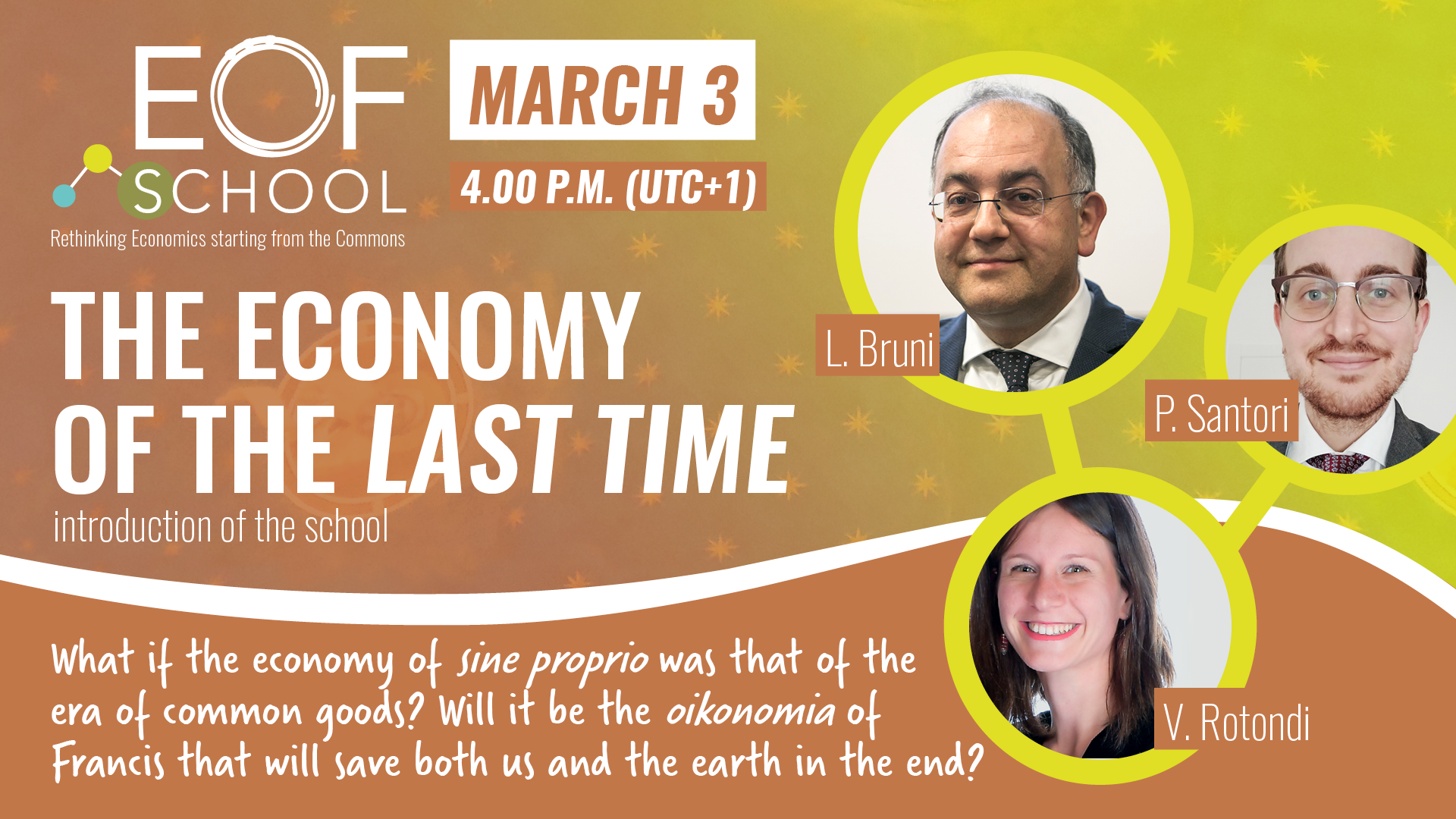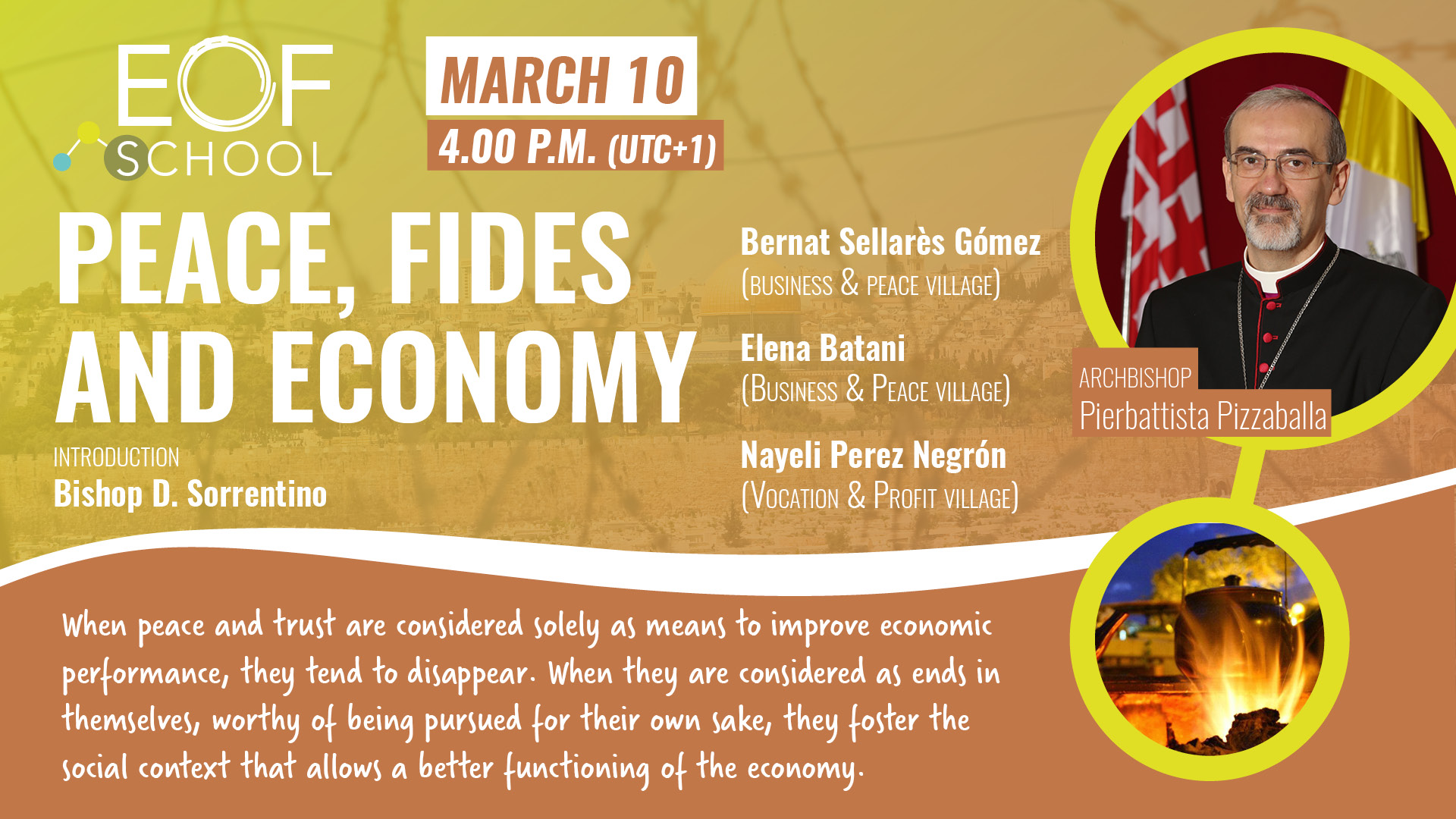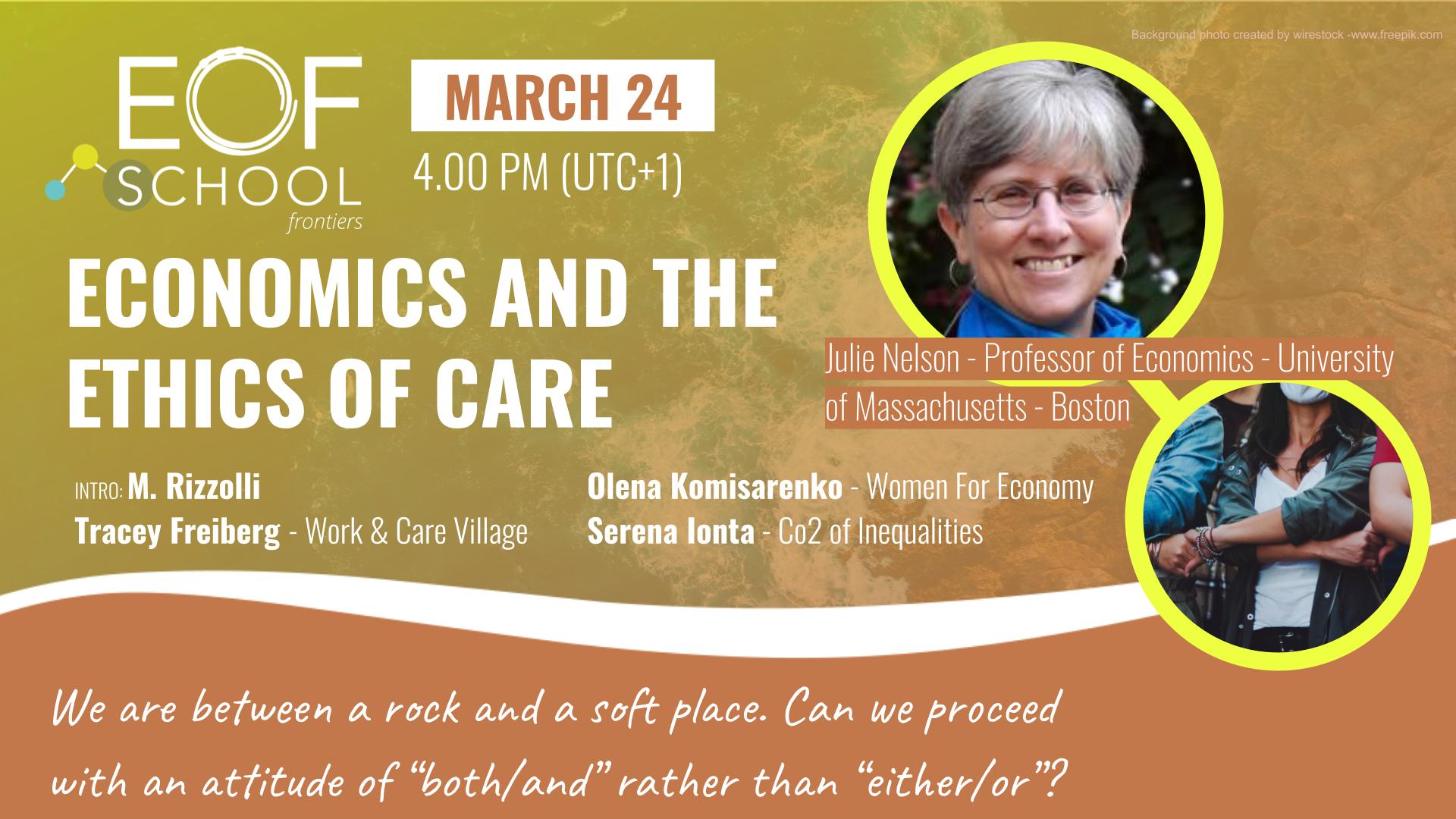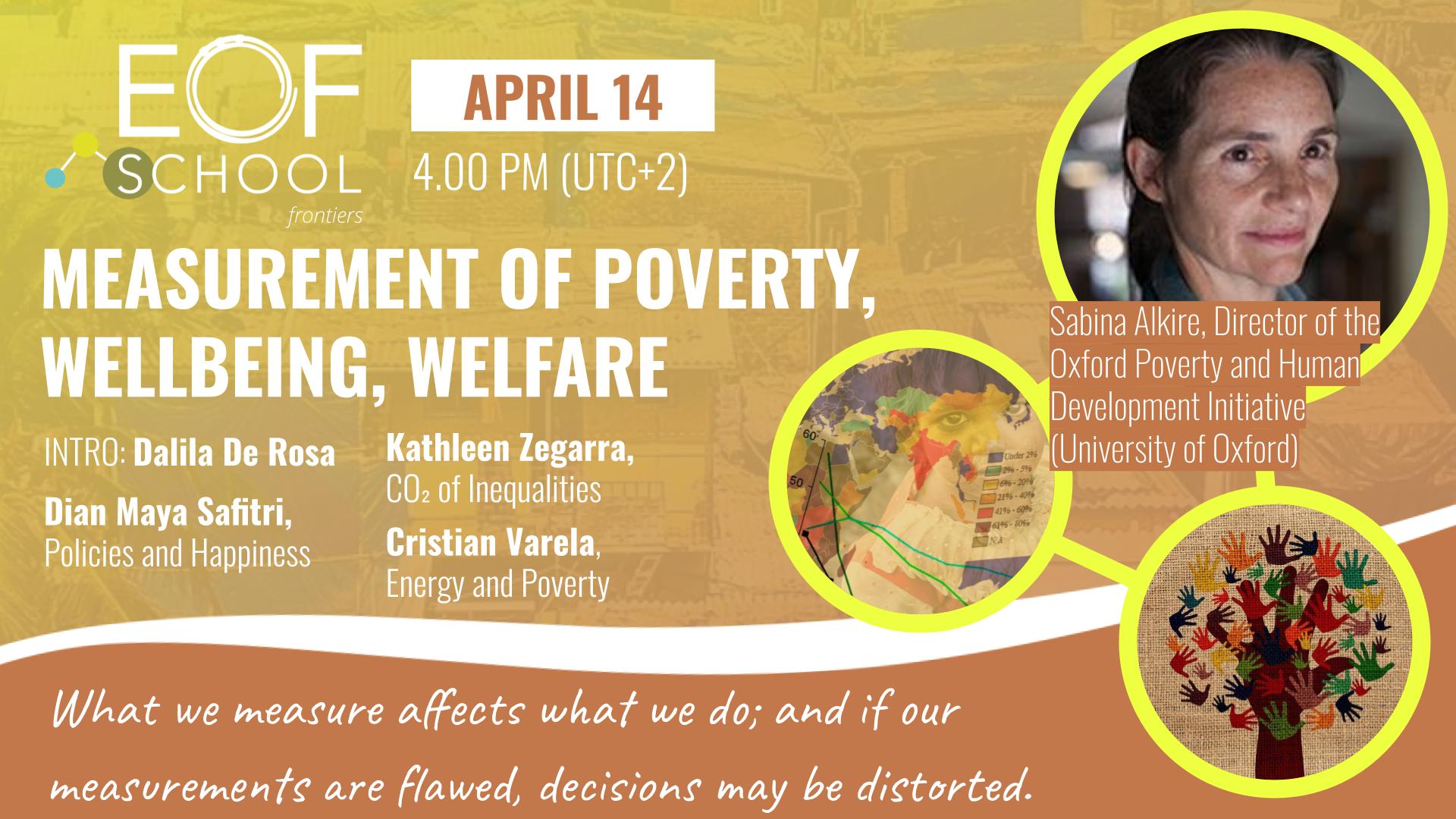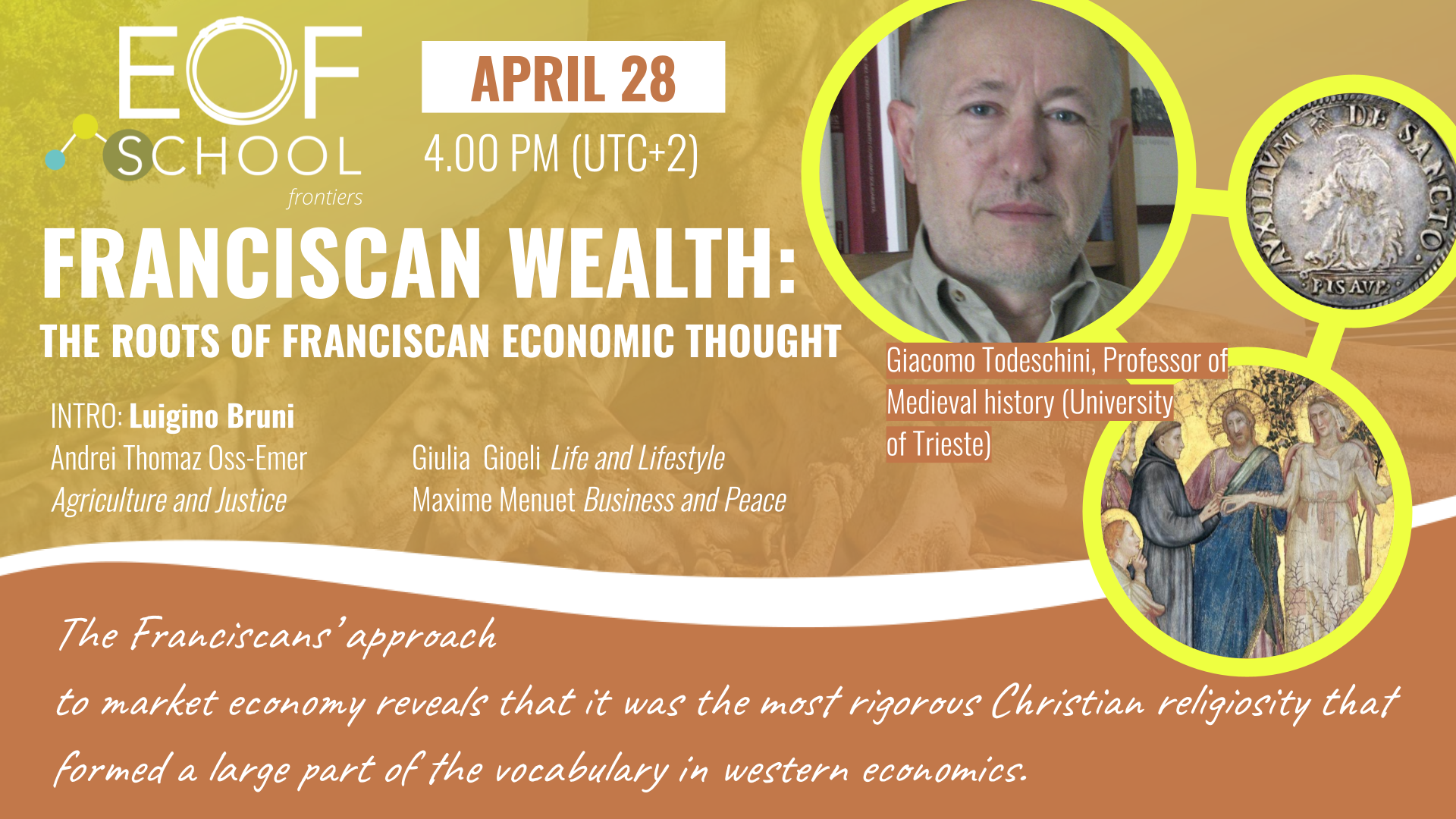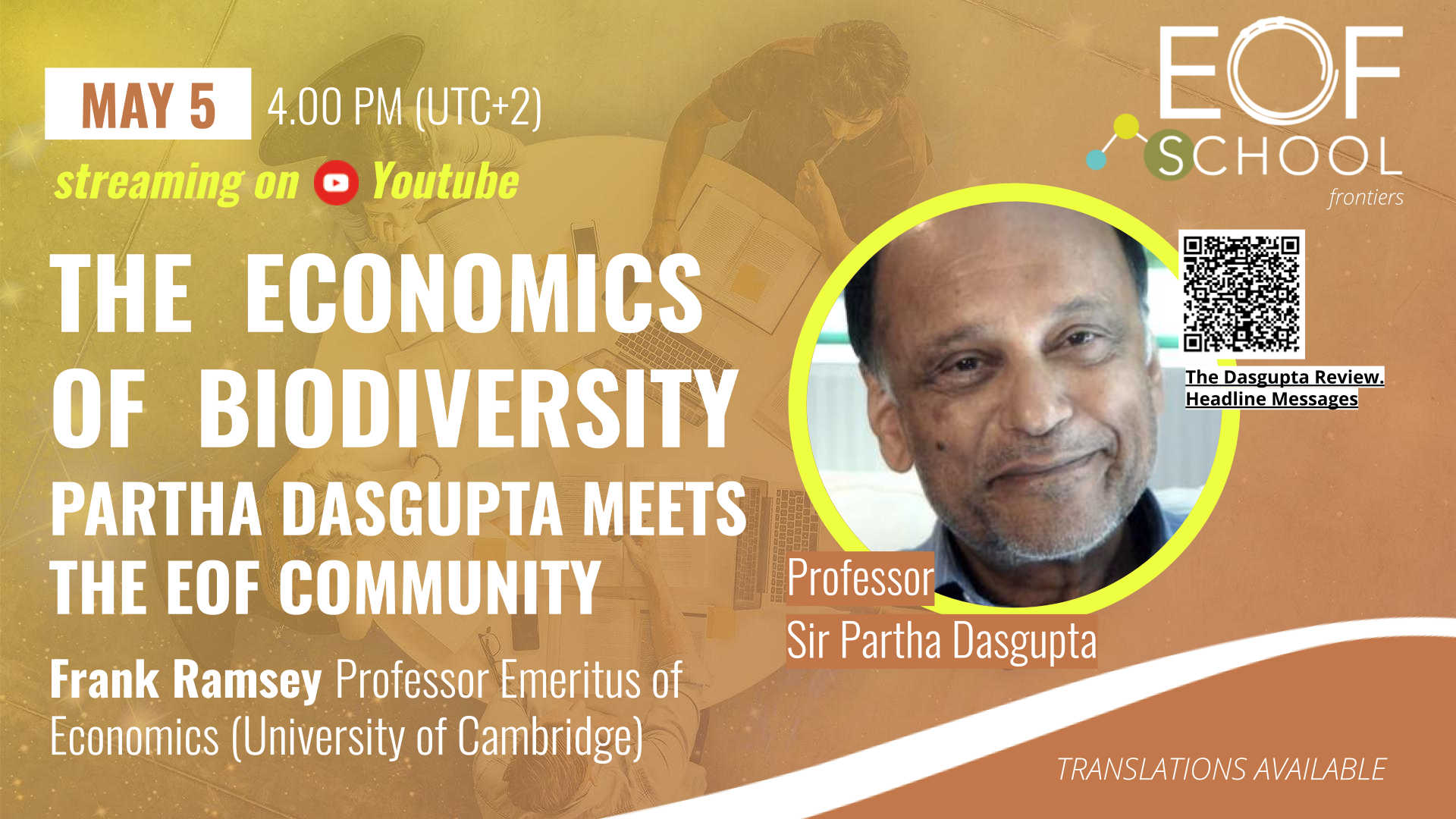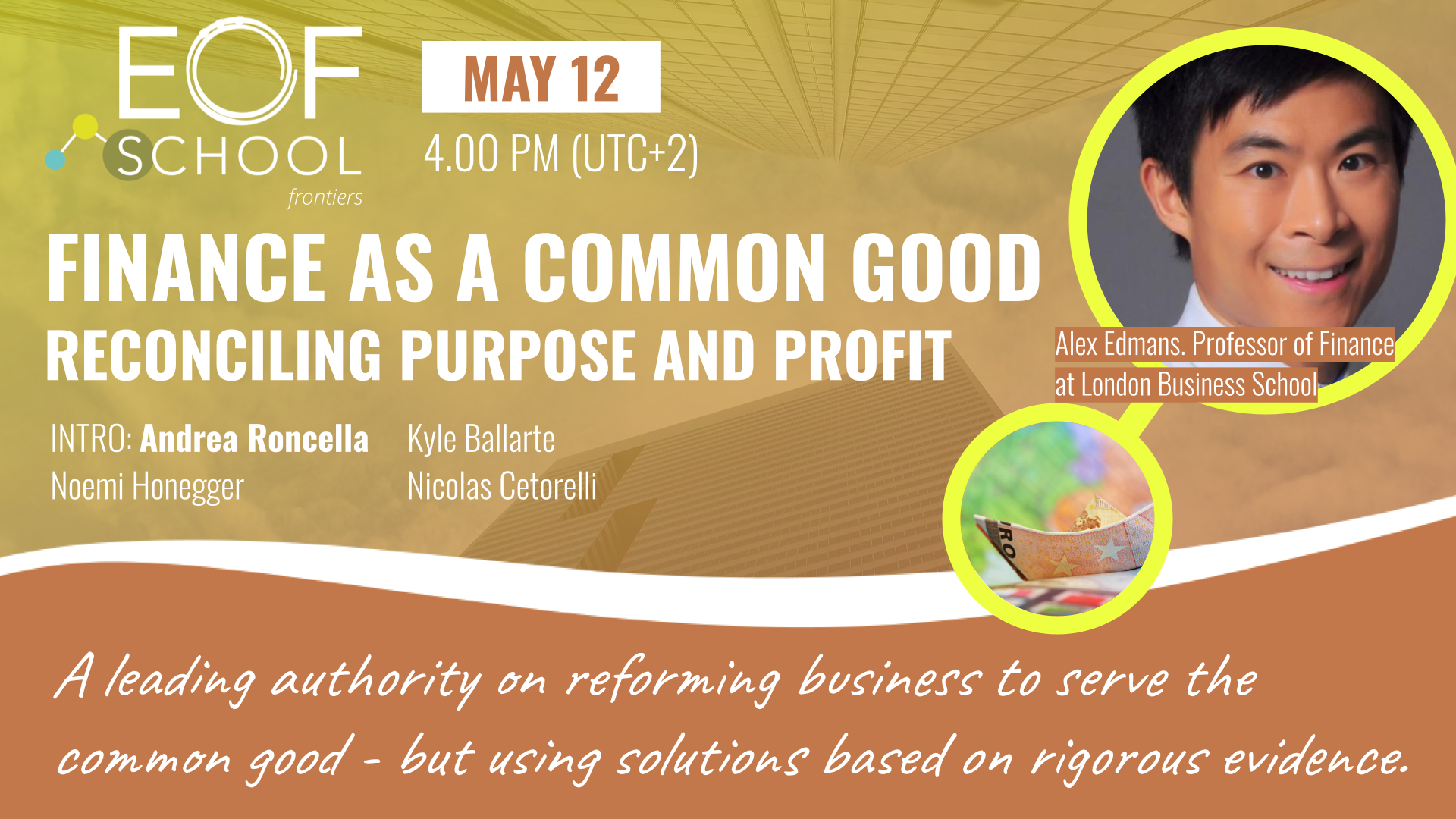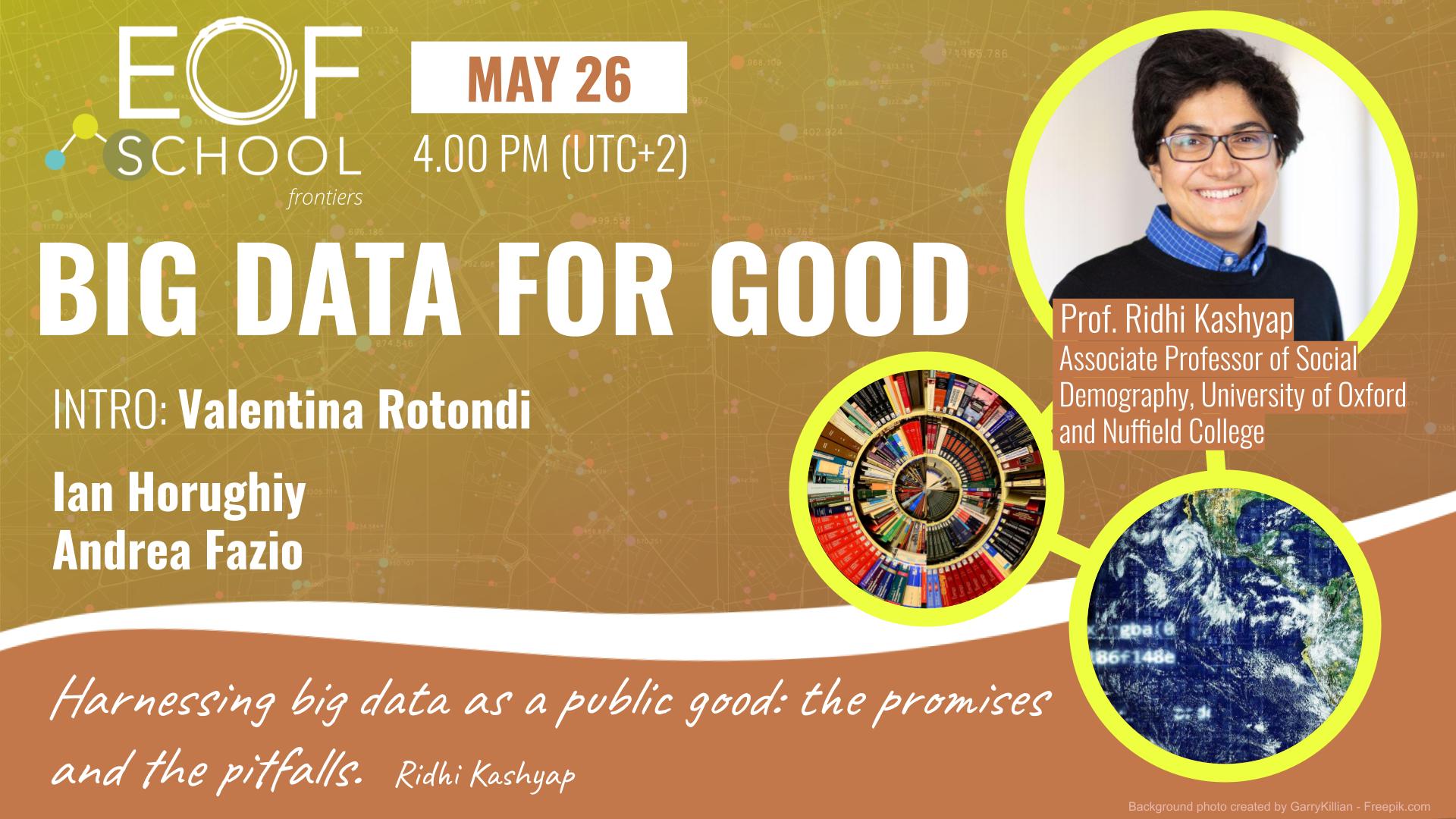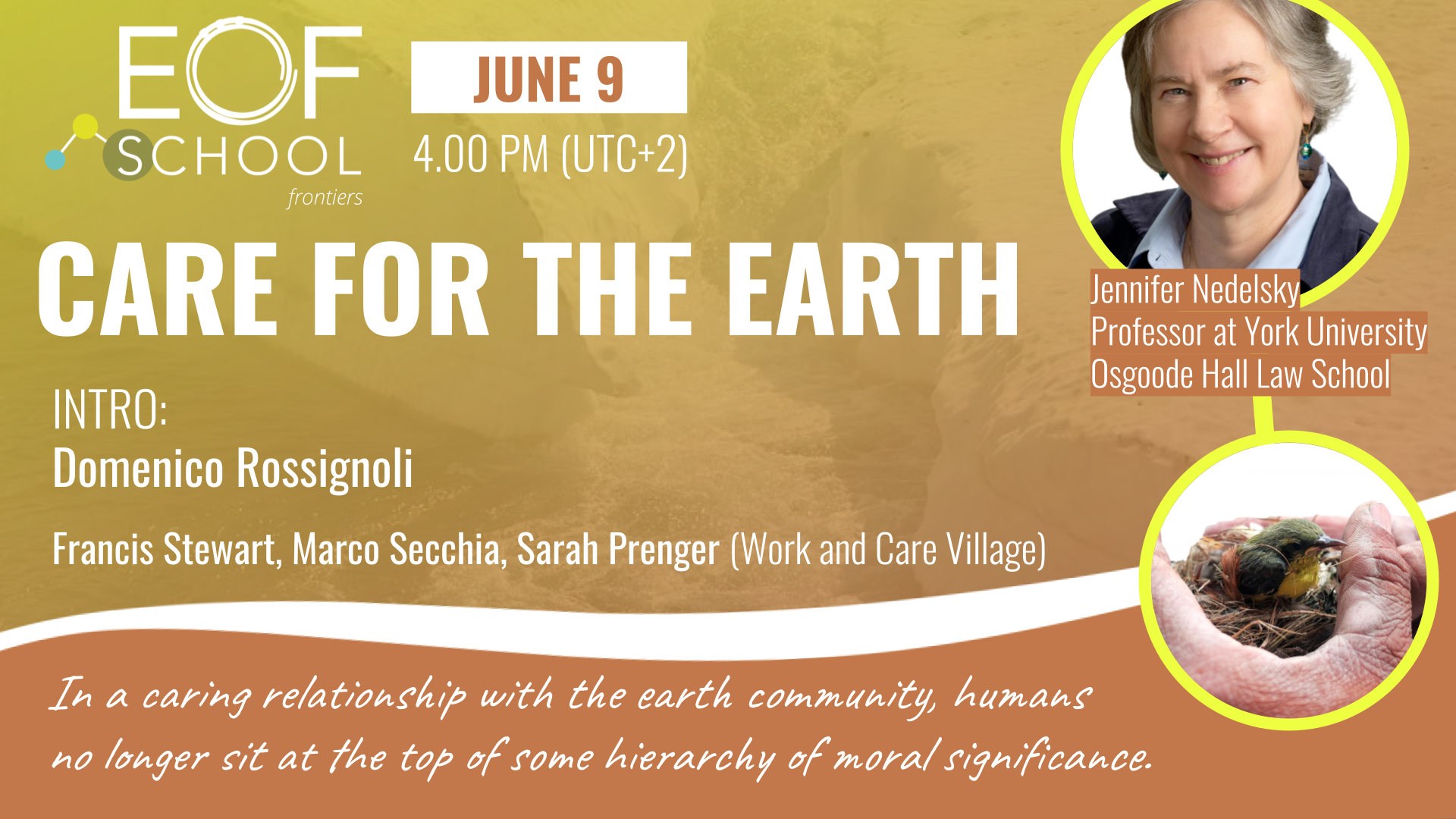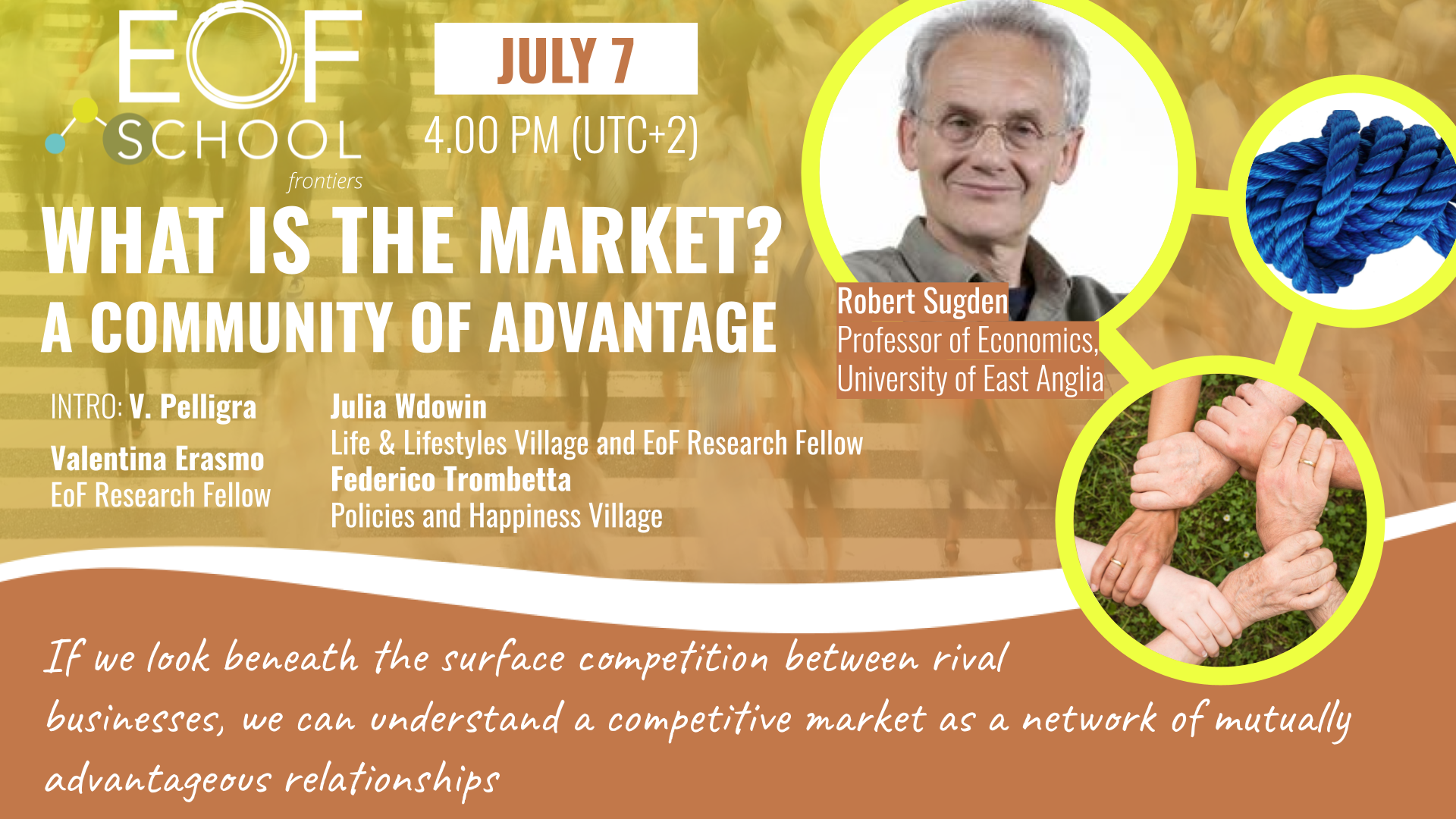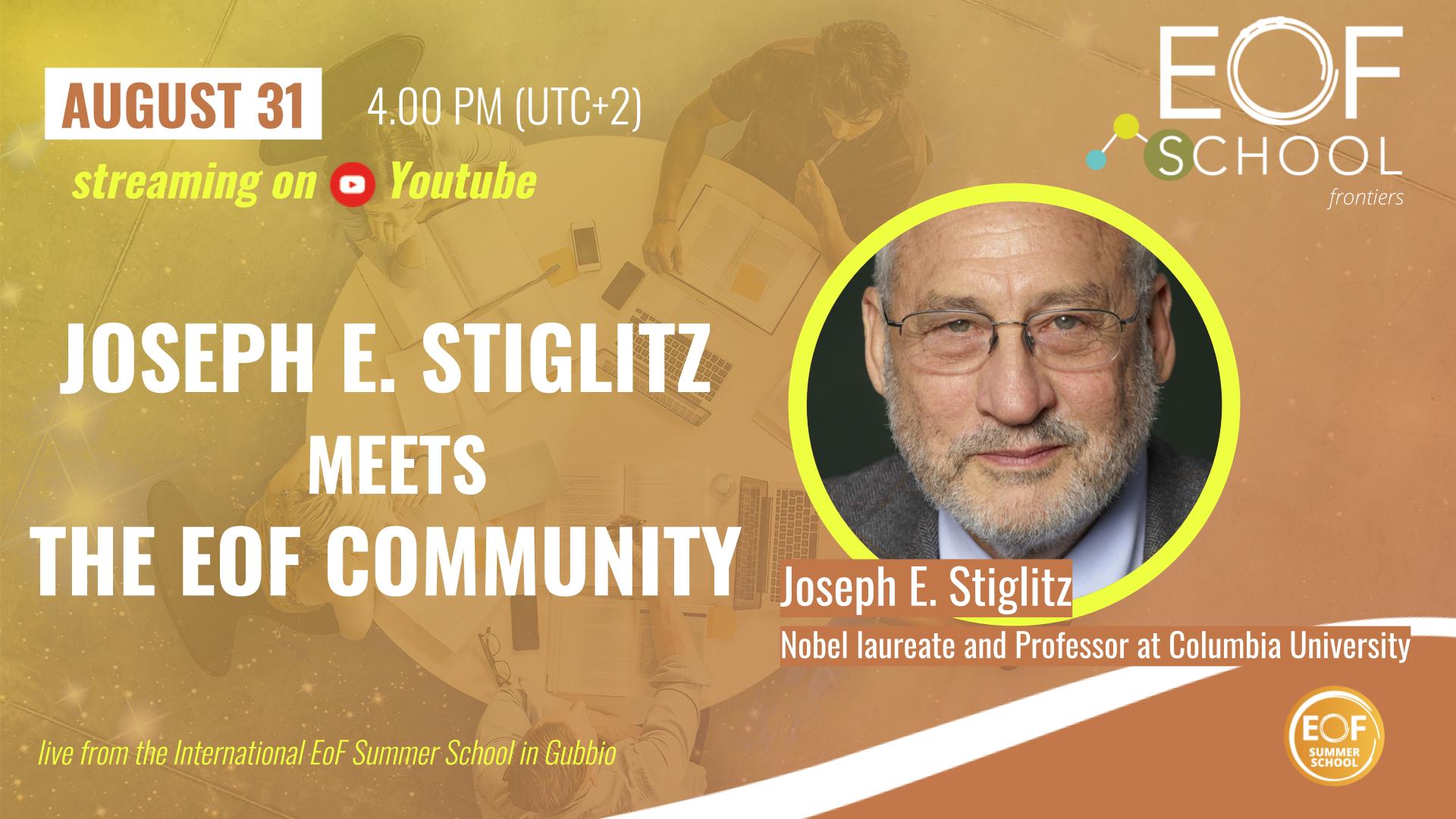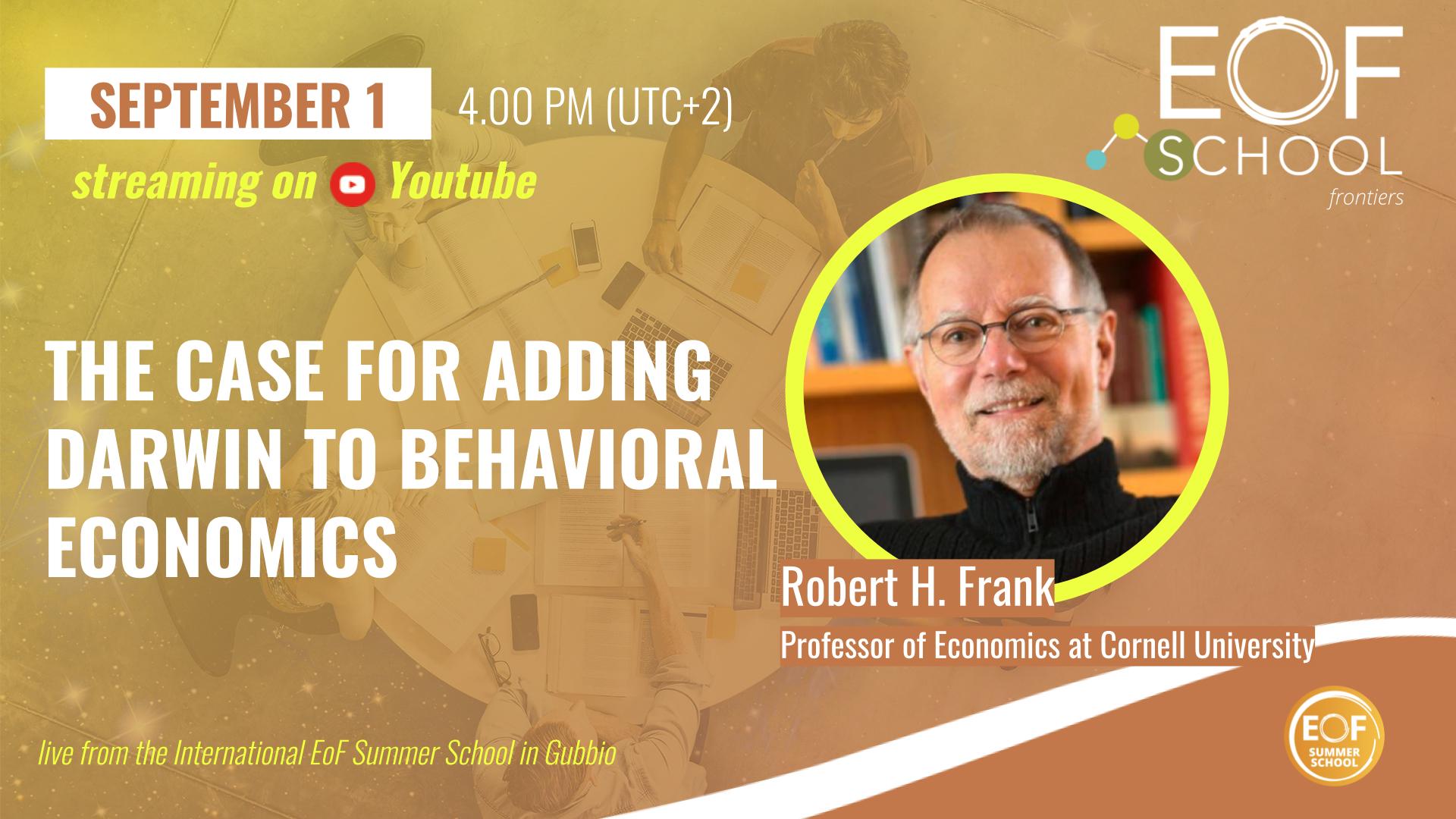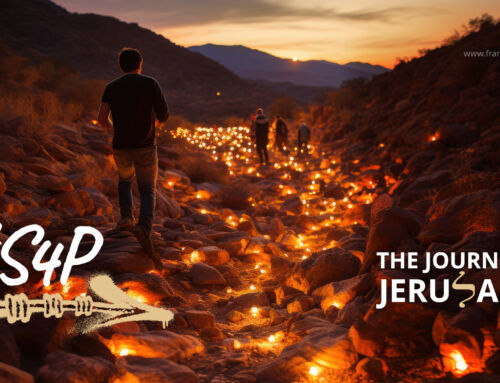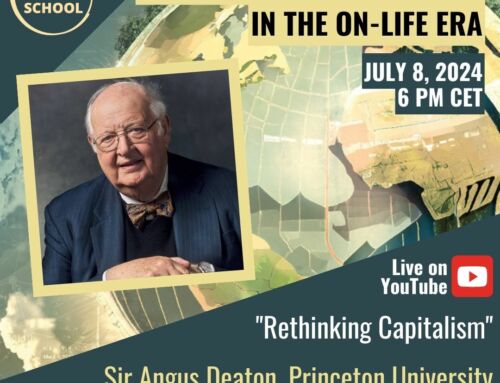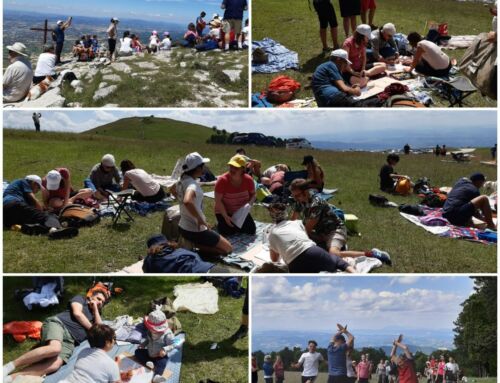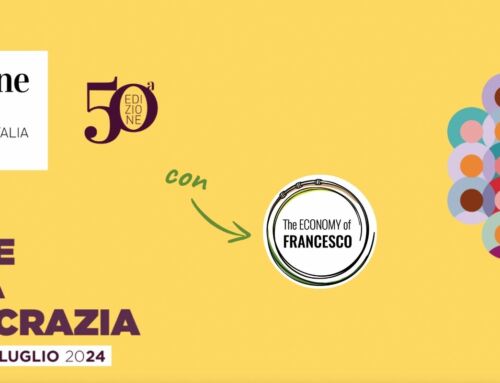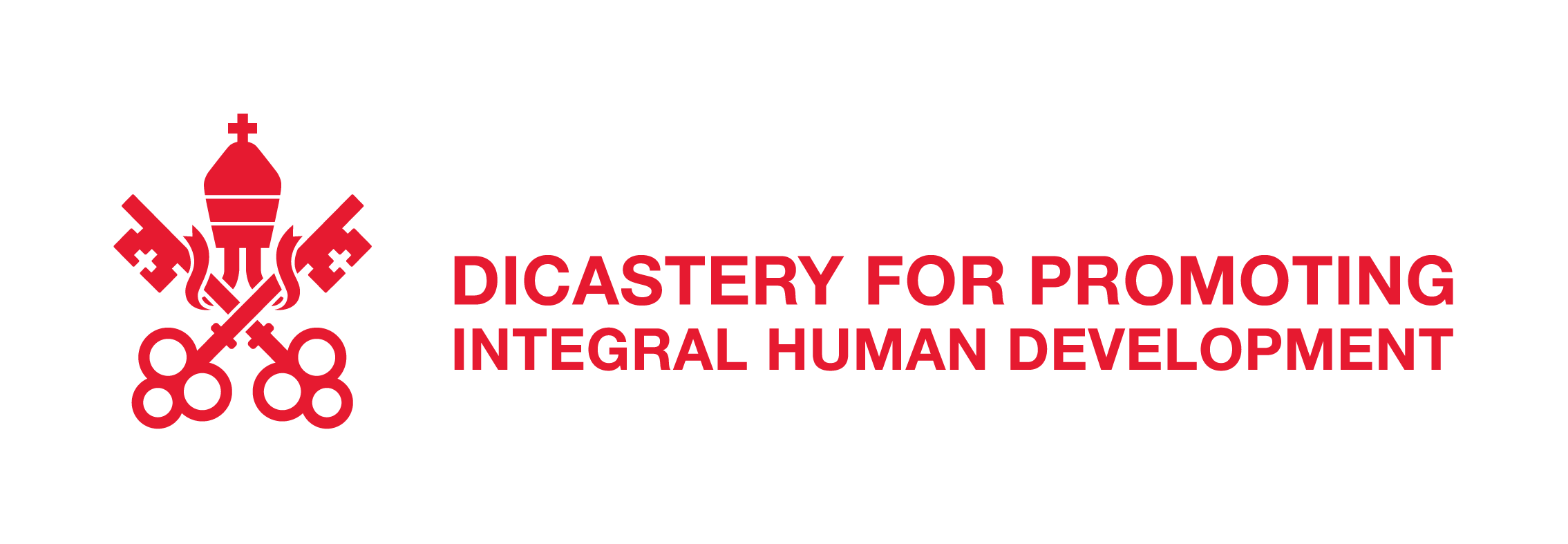EoF SCHOOL | ABSTRACTS and info
RETHINKING ECONOMICS STARTING FROM THE COMMONS
Common good is not the sum of individual goods, as well as the knowledge we are producing and sharing via the Economy of Francesco school is not simply the sum of the abstracts of the lessons here reported.
Teachers of the EoF school are, in fact, the outstanding scholars we invited, each bringing a piece of knowledge as expressed in the content of their lessons. At the same time, the teachers we invited are ready to be taught by the students and discussants of the EoF School.
Therefore, we advise the reader to look into these abstracts to find the topics that will be developed during the lessons but also to create her own synthesis among the materials presented. In the end, the school is not really about finding definite answers, but rather starting a common path to answer prophetic questions about economics and economic life:
What would happen if the courses of Economics taught in the Universities focused their attention on the topics of the commons rather than on private goods?
What if the formers become the main object of study and the latter the exception for the economic science?
What if the social business, rather than being considered a ‘hybrid’ form of business, becomes the normal approach, and the ethical and green finance rules over the financial sector?
Is it possible to move away from the primacy of the consumers to the preeminence of ethical consumers who expresses with their daily choices their preferences for an inclusive, sustainable and workers-friendly economic system?
INSIGHTS
Today, in fact, we have a new certainty: when it comes to the safeguard and custody of the Earth, to commons and relational goods, capitalism does not work. Its rationality based on the search for individual well-being does not know how take care of the planet, of the goods and of human relationships. If we continuously feel that we are owners and masters of the Earth we will only continue to destroy them. The sooner we learn how to use those goods without owning them, the better we become custodians of our only Earth.
In the year 2021, the Economy of Francesco (EoF) offers an advanced online course called “The Economy of Francesco School” to explore Pope Francis’s thought, Franciscan economic roots and institutions, and some of the topics which grounded the EoF Villages. Knowledge, we believe, is one of the most important common goods we should share if we want to improve our lives together. The course will move between the realms of the already and not yet, meaning that it will offer high formation on the conceptual and practical pillars of the Economy of Francesco while remaining open to new perspectives.
MARCH 3: L. Bruni, P. Santori, V. Rotondi – Introduction and Presentation of the EoF School: ” The economy of the last time“
“What if the economy of sine proprio was that of the era of common goods? Will it be the oikonomia of Francis that will save both us and the earth in the end?”
Abstract: Commons have gradually become scarce and crucial, and they are still too absent from the culture and practice of economics and politics. Common goods made their first appearance in economics in 1911. After a long eclipse they again appeared at the end of the past century in the work of Elinor Ostrom, who was awarded the Nobel Prize for Economics in 2009. Commons are essentially a matter of relationships, because they are relationships between people mediated by goods. Without attention to the relational dimension of life and the economy, and without a relationship that transcends time and generations, commons first cannot be seen, then they cannot be understood, and finally they perish. A capitalist economy must work hard to understand commons because, generally speaking, it does not address problems in a historical or geographical perspective, it sees distinct individuals rather than relationships, and it is defined entirely within the register of male rationality. So the main – if not the only – economic prospect on commons is their destruction, beginning with Hardin’s now classic 1968 text on the “tragedy of the commons”.
For all these reasons, commons are difficult to manage by the capitalist market alone. At the very least it is sad, if not outrageous, to continue to silently and resignedly watch speculators who appropriate water, common land, forests, raw materials, and public land in cities. Their quest for maximum profit from goods that do not belong to them, but to everyone, becomes an additional implicit tax on the citizens, a tax that does not augment the cities’ funds but those of distant shareholders. When will our city governments create an alliance with civil society and businesses to manage the soil, water, greenswards, and streets in a nonprofit and efficient manner? When will States realize that the commodification (much more than privatization) of commons, from highways to public transportation, is a shortsighted course with little social and economic thought?
<<< CLICK THE POSTER TO WATCH AGAIN THIS SESSION
MARCH 10> intro: Bishop D. Sorrentino | Archbishop P. Pizzaballa – Peace, Fides and Economy
DISCUSSANTS: Bernat Sellarès Gómez, Elena Batani, Nayeli Perez Negrón
Archbishop P. Pizzaballa is Latin Patriarch in Jerusalem. He lectured Hebrew at the Studium Biblicum Franciscanum. Consultor in the Commission for relations with Judaism of the Pontifical Council for the Promotion of Unity among Christians.
Abstract: This session outlines the current context of globalization and the challenges related to it. It then develops, in the light of the social doctrine of the Church and the magisterium of the last Popes, and in particular of Pope Francis, some closely related themes: faith – with particular attention to “integral human development” -, peace, universal fraternity and the urgency, invoked by Pope Francis, of a new economy based on a new man in whom the Christian recognizes the traits of the New Adam, the Christ. It does so with a special focus on the “warm” context of the Middle East in which the need for interreligious and intercultural dialogue is particularly felt.
<<< CLICK THE POSTER TO WATCH AGAIN THIS SESSION
MARCH 24> intro: M. Rizzolli | J. Nelson – Economics and the Ethics of Care
DISCUSSANTS: Tracey Freiberg, Olena Komisarenko, Serena Ionta
Emeritus Professor of Economics at the University of Massachusetts-Boston and senior research fellow at the Global Development and Environment Institute at Tufts University.
Dr. Nelson’s research areas include feminist economics, ecological economics, the philosophy and methodology of economics, ethics and economics, and the teaching of economics.
Abstract: Contemporary capitalist economies are intrinsically based on greed, private property, and competition, right? To save life on the planet from extinction, it seems we may need to shift to a radically different—in fact diametrically opposed—economy of pure altruism, sharing, and cooperation. Yet perhaps the way we’ve been trained to think about economics blinds us to opportunities that are not apparent in these two poles.
This presentation will show how the biased dogmas favored by mainstream economists have distorted our thinking. The neglect of nature, of the care provided to vulnerable humans (mostly, to date, by women), and of the commons in Neoclassical “chalkboard economics” has been deliberate. If we study real-world economies, however, we find that they are complex social, political, and environmentally-embedded systems, and that none could last a day without elements of care and trust. Our first step towards building economies that sustainably provide for the survival and flourishing of life needs to be a re-examination of how we think about “economic actors” and the kind of behavior suitable for the “economic sphere.”
<<< CLICK THE POSTER TO WATCH AGAIN THIS SESSION
APRIL 14> intro: D. De Rosa | S. Alkire – Measurement of poverty, wellbeing, welfare
DISCUSSANTS: Dian Maya Safitri, Kathleen Zegarra, Cristian Varela
Dr. Sabina Alkire directs the Oxford Poverty and Human Development Initiative (OPHI). She is the Associate Professor of Development Studies in the Oxford Department of International Development at the University of Oxford.
Her research interests include multidimensional poverty measurement and analysis, welfare economics, the capability approach, the measurement of freedoms and human development. From 2015–16, Sabina was Oliver T Carr Professor of International Affairs and Professor of Economics at George Washington University. Previously, she worked at the Global Equity Initiative at Harvard University, the Human Security Commission, and the World Bank’s Poverty and Culture Learning and Research Initiative. She holds a DPhil in Economics from the University of Oxford.
<<< CLICK THE POSTER TO WATCH AGAIN THIS SESSION
APRIL 28> intro: L. Bruni | G. Todeschini – Ricchezza Francescana: the roots of Franciscan economic thought
DISCUSSANTS: Andrei Thomas Oss-Emer, Giulia Gioeli, Maxime Menuet
After his studies at the University of Bologna, prof. Giacomo Todeschini was appointed as Professor of Medieval history at the University of Trieste in 1979. His studies focus on the development of medieval economic theory and languages, Christian doctrine of infamy and exclusion from citizenship and market games, and the political role of Jews inside of the Christian medieval-modern world.
<<< CLICK THE POSTER TO WATCH AGAIN THIS SESSION
*MAY 5> intro: L. Becchetti | P. Dasgupta – The Economics of Biodiversity – Partha Dasgupta meets EoF Community
“Our economies, livelihoods and wellbeing ultimately depend on nature, and its biodiversity. And so economics is in need of biodiversity in that the discipline must understand the natural world and how it supports economic activity and prosperity”
<<< CLICK THE POSTER TO WATCH AGAIN THIS SESSION
MAY 12> intro: A. Roncella | A. Edmans – Finance as a Common Good. Reconciling purpose and profit
DISCUSSANTS: Noemi Honegger, Kyle Ballarte, Nicolas Cetorelli
Professor of Finance at London Business School and Academic Director of the Centre for Corporate Governance.
Prof. Alex Edmans graduated from Oxford University and then worked for Morgan Stanley in investment banking (London) and fixed income sales and trading (New York). Edmans’ research interests are in corporate finance (corporate governance, executive compensation, investment/growth/innovation, and M&A), behavioural finance, and responsible business.
Abstract: Purpose is one of the corporate buzzwords of 2021, with the politicians, the public, and even investors themselves calling on businesses to serve wider society. But it seems unrealistic to think about purpose in a pandemic when companies are strapped for cash, and companies also have a responsibility to their shareholders. Is there a trade-off between purpose and profit, or is it possible for companies to achieve both? This talk will critically examine the case for purposeful business, using rigorous evidence and real-life examples to show what works – and, importantly, what doesn’t. It will discuss practical ways for businesses of all sizes to put purpose into practice, and how investors and citizens can play their part. Professor Alex Edmans will draw on his new book, “Grow the Pie: How Great Companies Deliver Both Purpose and Profit”, which was named to the Financial Times Business Books of the Year for 2020.
<<< CLICK THE POSTER TO WATCH AGAIN THIS SESSION
MAY 26> intro: V. Rotondi | R. Kashyap – Big Data for good
DISCUSSANTS: Ian Horughiy, Andrea Fazio
Associate professor of social demography University of Oxford and professorial fellow at Nuffield College.
Her research spans topics in demography and sociology related to population dynamics and human development, with a significant focus on different manifestations of gender inequality. Her work advances the use and applications of digital and computational innovations in demographic research, and examines the implications of digital technologies on demographic and development outcomes.
<<< CLICK THE POSTER TO WATCH AGAIN THIS SESSION
JUNE 9> intro: D. Rossignoli | J. Nedelsky – Care for the Earth
DISCUSSANTS: Francis Stewart, Marco Secchia, Sarah Prenger
Professor at York University – Osgoode Hall Law School
Her teaching and scholarship have been concentrated on Feminist Theory, Legal Theory, American Constitutional History and Interpretation, and Comparative Constitutionalism
<<< CLICK THE POSTER TO WATCH AGAIN THIS SESSION
JULY 7> intro: V. Pelligra | R. Sugden – What is the market? A Community of Advantage
DISCUSSANTS: Valentina Erasmo, Julia Wdowin, Federico Trombetta
<<< CLICK THE POSTER TO WATCH AGAIN THIS SESSION
JULY 21> intro: A. Grevin | E. Chiapello – The rise of impact on financing decision
Research Professor at EHESS
DISCUSSANTS: Plinio Limata, Ingrid Omerzo, Alex Wang
Following on from the Sociologie des Outils de Gestion research manual (Chiapello, Gilbert, 2013) which presents various possible approaches to the development of a sociology which takes account of management tools and policy instruments, she aims to analyse transformations of capitalism by decoding the management tools used by companies and the political instruments employed by legal entities under public law to regulate and organise this capitalism. More specifically, over the last two years she has been examining the phenomenon of the financialisation of our economy and the tools used for said financialisation. In particular, she is trying to document the penetration of all business sectors by “financialised” tools, i.e. by instruments which rely both conceptually and technically on the technical and scientific corpus of modern finance. She is also looking to understand the extent to which financialised formats are mobilised to incorporate certain critiques of capitalism into its operation. For example, it would appear that the ecology issue is leading to the invention of various financialised devices.
Some topic oh her research: Critiques of capitalism and the history of management; Sociology of management tools and political instruments; Accounting categories and economic categories.
<<< CLICK THE POSTER TO WATCH AGAIN THIS SESSION
AUGUST 25> intro: L. Crivelli | F. Dodoo – Public Health CANCELLED
British Academy Global Professor at the Leverhulme Center for Demographic Science and Nuffield College, University of Oxford.
Research spans gender, power and sexual decision-making, demographic and health outcomes associated with urban poverty, inequality issues among Africans in the diaspora, and building research capacity in Africa. Joining LCDS in January 2021.
*AUGUST 31> LECTIO MAGISTRALIS from the EoF International Summer School | J. Stiglitz
<<< CLICK THE POSTER TO WATCH AGAIN THIS SESSION
*SEPTEMBER 1> LECTIO MAGISTRALIS from the EoF International Summer School | R. H. Frank – The Case for Adding Darwin to Behavioral Economics
He is the Henrietta Johnson Louis Professor of Management and Professor of Economics at Cornell’s Johnson Graduate School of Management and a Distinguished Senior Fellow at Demos.
For more than a decade, his “Economic View” column appeared monthly in The New York Times. He received his BS in mathematics from Georgia Tech, and then taught math and science for two years as a Peace Corps Volunteer in rural Nepal. He holds an MA in statistics and a PhD in economics, both from the University of California at Berkeley. His papers have appeared in the American Economic Review, Econometrica, Journal of Political Economy, and other leading professional journals.
Faculty Area: Strategy and Business Economics
Interdisciplinary Theme: Behavioral Economics and Decision Research – Innovation, Entrepreneurship & Technology
<<< CLICK THE POSTER TO WATCH AGAIN THIS SESSION
SEPTEMBER 15> intro: A. Smerilli | C. Bicchieri CANCELLED
SJP Harvie Professor, University of Pennsylvania. Director, Center for Social Norms and Behavioral Dynamics. Director, PPE and MBDS. Honorary Fellow, Wolfson College, Cambridge.
Her intellectual affinities lie at the border between philosophy, game theory and psychology. Primary research focus is on judgment and decision making with special interest in decisions about fairness, trust, and cooperation, and how expectations affect behavior. A second research focus examines the nature and evolution of social norms, how to measure norms and what strategies to adopt to foster social change. This research is more applied, and forms the core of the newly created Penn Social Norms Group (PennSONG). A third, earlier research focus has been the epistemic foundations of game theory and how changes in information affects rational choices and solutions.
*this session will be only broadcast live on YouTube
GENERAL INFORMATION:
- Organizing Committee: Valentina Rotondi, Paolo Santori
- 12 lessons around the topics of the Economy of Francesco (+ some special sessions)
- Each lesson will last one hour: 5 minutes of introduction, 30 minutes of keynote speaker’s presentation, 15 minutes of young EoF’s discussion, and 10 minutes of Q & A
- The lessons will be streamed live on the Zoom platform and on a private YouTube link streaming
- Each seminar will start at 4 p.m. (Italian Time)
- Guest speakers will be outstanding scholars and entrepreneurs
- Language: English
HOW TO PARTICIPATE:
- Registration deadline: March 1, 2021
- The registration gives rights to: access to all the lessons hosted on zoom; chance to pose questions to the guests; private talks (whereas possible); interactive workshops; studying materials/handouts on the topic of each lesson
- The registration allow to attend the whole school
- A certificate will be released to the participants who have attended at least 75% of 12 lessons (if required)
- NO participation fee
CONTACT: [email protected]

